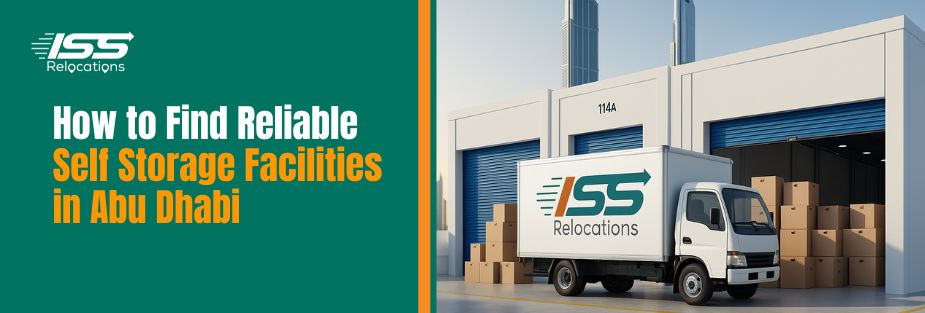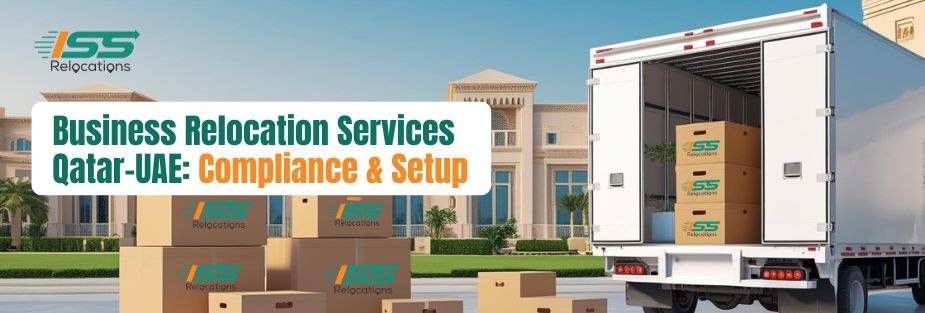
10 Things To Know Before Relocating to Saudi Arabia
Looking to move to Saudi Arabia? Don’t forget these 10 things to know before moving to Saudi Arabia. Relocating to a new country can be an exciting yet challenging experience.
If you’re considering Relocating to Saudi Arabia, it’s crucial to be well-informed about the cultural, social, and practical aspects of living in the country. This guide aims to provide you with valuable insights and essential information to help you navigate the process smoothly. Additionally, ISS Relocations, a trusted relocation company, is dedicated to ensuring your relocation is hassle-free and your belongings arrive safely. Let’s dive into the key things you need to know before making the move to Saudi Arabia.
10 things to know before moving to Saudi Arabia
Cultural and Social Aspects
Saudi Arabian culture and traditions are deeply rooted in Islamic values and customs. It’s important to familiarize yourself with these aspects to adapt and respect local customs. Gender roles and interactions are often influenced by cultural and religious norms. Men and women may have different social spaces and interactions, and it’s crucial to be mindful of these dynamics. Saudi society places high importance on hospitality and social etiquette, with gestures such as offering tea and dates being common when visiting someone’s home.
The dress code and modesty requirements in Saudi Arabia are notable. While men typically wear traditional thobes, women often wear abayas, and loose-fitting black garments. The abaya is a symbol of modesty and religious observance for women. It’s essential to dress modestly in public as a sign of respect for the local culture and religion. However, it’s worth noting that there are variations in dress code enforcement, especially in expatriate-friendly areas such as compounds and shopping malls.
Language and Communication
Arabic is the official language of Saudi Arabia, and learning basic Arabic phrases can greatly enhance your experience and communication with locals. While English is widely spoken, especially in urban areas and among expatriate communities, learning some Arabic phrases can help you connect with locals and better immerse yourself in the culture. Understanding and respecting cultural nuances in communication, such as using respectful gestures and body language, is essential for effective communication in a multicultural environment.
Religious Practices
Islam is the dominant religion in Saudi Arabia, and religious practices have a significant impact on daily life. It’s important to familiarize yourself with Islamic practices and beliefs, as they shape various aspects of society, including working hours and public observances. Observing prayer times and respecting the fasting month of Ramadan are crucial to understanding and embracing the local culture. When visiting mosques and holy sites, it’s essential to adhere to proper etiquette and dress modestly.
Legal and Administrative Considerations
Before relocating to Saudi Arabia, it’s essential to understand the visa requirements and procedures. The country offers various types of visas for different purposes, including work, residency, and visit visas. Depending on your situation, sponsorship, and employment-related visa regulations may apply. It’s advisable to consult with Saudi Arabian embassies or consulates in your home country to ensure a smooth visa application process.
Understanding local laws and regulations is also paramount. Saudi Arabia’s legal system is based on Islamic law, with cultural and religious norms significantly influencing legislation. It’s important to respect and abide by these laws to ensure a positive and trouble-free experience in the country. Being aware of local customs and cultural sensitivities can go a long way in avoiding any legal issues or misunderstandings.
Cost of Living and Financial Considerations
The cost of living in Saudi Arabia varies depending on factors such as location, lifestyle, and family size. Housing and accommodation expenses can be a significant portion of your budget, particularly in urban areas. Transportation costs, including fuel prices, should also be taken into account when planning your finances. Additionally, grocery and healthcare expenses should be considered to ensure you have a realistic budget to cover all your needs.
When it comes to housing and accommodation expenses, Saudi Arabia offers a range of options to suit different budgets and preferences. In major cities like Riyadh, Jeddah, and Dammam, you’ll find a variety of apartments, villas, and compounds. The cost of rent can vary significantly depending on the location and size of the property. It’s advisable to research the rental market and consider factors such as proximity to schools, workplaces, and amenities when making your housing decision.
Transportation costs in Saudi Arabia are influenced by the availability of affordable fuel prices. As the country is one of the largest oil producers, fuel costs are relatively low compared to many other countries. However, it’s important to factor in expenses related to car ownership, such as vehicle registration, insurance, and maintenance. Public transportation options, including buses and taxis, are also available in urban areas, providing convenient alternatives for getting around.
Grocery and healthcare expenses are essential considerations for a comfortable living experience in Saudi Arabia. The cost of groceries can vary depending on the type of food items and brands you prefer. Local markets and supermarkets offer a wide range of products, including both local and imported goods. Healthcare services in Saudi Arabia are of a high standard, with a mix of public and private hospitals and clinics. Expatriates are required to have health insurance, which covers both routine healthcare needs and emergencies.
When it comes to banking and financial services, Saudi Arabia has a well-established banking sector with both local and international banks operating in the country. Opening a bank account is a straightforward process, and it’s recommended to do so upon arrival to facilitate financial transactions and manage your finances effectively. Additionally, it’s important to be aware of currency exchange rates and any fees associated with international transactions to avoid unnecessary charges.
Healthcare and Education
The healthcare system in Saudi Arabia provides accessible and quality medical services to residents. Both public and private healthcare facilities are available throughout the country, with major cities housing renowned hospitals equipped with advanced technology and experienced medical professionals. Expatriates are required to have health insurance provided either by their employer or through a private plan. It’s advisable to research the available healthcare options and understand the coverage and services offered by your insurance provider.
For families relocating to Saudi Arabia, education is a key consideration. The country offers a variety of educational options, including international schools that cater to expatriate children. These schools typically follow international curricula, such as the British, American, or International Baccalaureate (IB) systems. International schools provide a familiar educational environment for expatriate children and ensure continuity in their academic progress. Higher education opportunities for expatriates are also available, with several universities and colleges offering programs in English.
Safety and Security
Saudi Arabia has a reputation for being a safe and secure country with low crime rates. The government places a strong emphasis on law enforcement, ensuring the safety of its residents and visitors. However, as with any country, it’s important to exercise caution and be aware of your surroundings. Familiarize yourself with local customs and traditions to ensure you don’t inadvertently offend anyone or find yourself in an uncomfortable situation. Dressing appropriately, especially in more conservative areas, can help you avoid unwanted attention and demonstrate respect for the local culture.
Work and Business Environment
Saudi Arabia provides employment opportunities for expatriates across various industries and job sectors. The country’s economy is diverse, with sectors such as oil and gas, finance, healthcare, education, and construction offering promising prospects. It’s important to understand the work culture and business etiquette in Saudi Arabia, which may differ from what you’re accustomed to. Building strong professional relationships, respecting hierarchy, and adapting to local customs can contribute to your success in the workplace.
If you’re considering setting up a business in Saudi Arabia, it’s essential to familiarize yourself with the legal requirements and registration process. The Kingdom encourages foreign investment and offers several options for establishing a business, including limited liability companies, joint ventures, and branch offices. However, there are specific regulations and procedures to follow, such as obtaining the necessary licenses and permits. Consulting with a local lawyer or business advisor can provide valuable guidance and ensure compliance with local laws and regulations.
Understanding the local market and competition is crucial for the success of your business in Saudi Arabia. Conduct thorough market research to identify opportunities, assess the demand for your products or services, and understand the competitive landscape. Establishing strong connections and building a network of local partners or distributors can also help navigate the market effectively. It’s important to be adaptable and flexible in your business strategies to accommodate cultural preferences and local business practices.
Conclusion
Relocating to Saudi Arabia is an enriching and transformative experience, but it requires careful planning and preparation. In this guide, we have covered the key aspects you need to know before making the move, including cultural and social considerations, language and communication, religious practices, legal and administrative requirements, cost of living, healthcare and education, safety and security, and the work and business environment. By being well-informed and understanding the intricacies of living in Saudi Arabia, you can make a smoother transition and fully embrace the local culture.
It’s important to emphasize the significance of thorough research and preparation before relocating to Saudi Arabia. Each individual’s experience may vary, and it’s essential to consider personal circumstances and preferences when making decisions. ISS Relocations, as a trusted relocation company, understands the complexities of international moves and is committed to ensuring a seamless transition for their clients. Their expertise and assistance can alleviate the stress of relocation and provide peace of mind, knowing that your belongings will be handled with care and arrive safely at your new home.
In conclusion, relocating to Saudi Arabia offers a unique opportunity to immerse yourself in a rich cultural heritage, experience a dynamic business environment, and enjoy a high quality of life. By embracing the cultural norms, respecting local customs, and being well-prepared, you can make the most of your relocation experience in the Kingdom. Whether you’re moving for work, education, or personal reasons, Saudi Arabia welcomes expatriates from around the world and offers a vibrant and rewarding experience for those willing to embrace its wonders.
Plan Stress-free Move with Top Moving Company in UAE - ISS Relocations

Frequently Asked Questions
Is it worth relocating to Saudi Arabia?
Yes, Saudi Arabia offers lucrative job opportunities, a tax-free salary, and a low cost of living. ISS Relocations ensures a hassle-free transition with expert relocation services.
How much money do you need to move to Saudi Arabia?
The amount varies depending on lifestyle, but a comfortable relocation requires $5,000–$10,000. ISS Relocations provides budget-friendly moving solutions for individuals and families.
What is a good salary to live in Saudi Arabia?
A salary of $3,000–$5,000 per month is considered good, depending on your living expenses. ISS Relocations helps in salary negotiations and smooth relocation.
Are Saudi citizens wealthy?
Many Saudis are wealthy due to oil revenues and government benefits. Expats can also enjoy a high standard of living with proper financial planning, supported by ISS Relocations.
Why did people migrate to Saudi Arabia?
People move for better job opportunities, tax-free income, and a stable economy. ISS Relocations ensures an easy transition with professional moving and settling-in services.
What are the advantages of living in Saudi Arabia?
Saudi Arabia offers financial stability, no income tax, and a growing expat community. ISS Relocations assists with housing, visa processing, and cultural integration.
How can I permanently settle in Saudi Arabia?
Permanent residency can be obtained through the Premium Residency program or long-term employment. ISS Relocations provides expert guidance on securing residency in Saudi Arabia.
Moving Company - Recent Blog
Stay informed and prepared for your next move with our latest blogs on moving services in the UAE. From expert packing tips to international relocation guides, ISS Relocations brings you up-to-date insights to make your moving experience smoother, safer, and stress-free.










